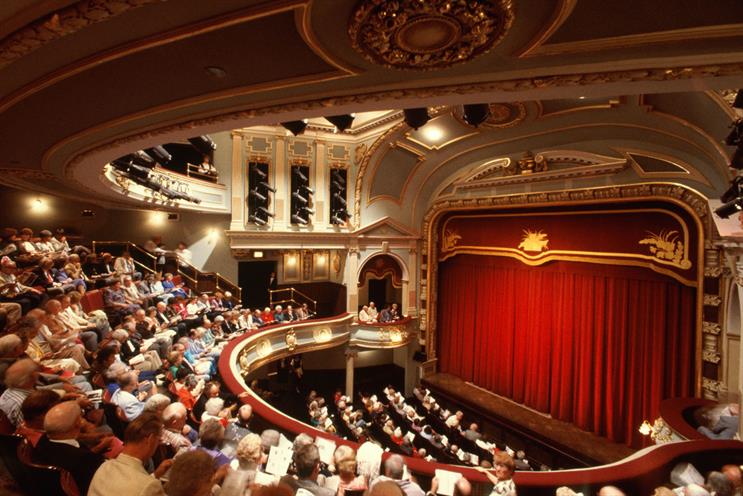As the government bungles its way through another week of lockdown easing, it announced that theatres may reopen but not put on any live shows. Say what now? What are they supposed to do, open their doors for the great lost earring hunt?
This comes on the heels of an open letter from the West End’s finest asking for government support in light of the fact that 70% of theatres will run out of cash by the end of the year and four are already in administration.
As a leader of a creative company, I believe profoundly in the power of creativity to move, unite and challenge people. A government report released in February showed that the UK’s creative industries sector was growing five times faster than the national economy. But creativity is a finely balanced ecosystem and commercial creativity is intrinsically linked to recreational creativity.
A healthy cultural arts scene makes for a healthy creative sector and we are world-class in both. That’s why big multinationals come to London for what the commercial creative sector offers and our performance-arts brands are both a tourism magnet and an export strength. This is before we even consider how theatre ignites a chain of important microeconomic value in towns and cities around the country. More of us go to the theatre than to the footy.
Director Sam Mendes has called on the big streaming services that have been the lifeblood of our recreational entertainment during isolation to share some of the ample profits they’ve made this year with theatres.
This would work as long as the funds don’t come with strings attached. While I definitely want us all (and brands and corporations) to emerge from this crisis kinder and looking out for each other, I also don’t want the integrity and neutrality of this spectacular art form to be compromised. At its best, unfettered by corporate sponsor agendas and US megabrand interference, theatre holds up a mirror to us and tells universal stories of the human condition.
So what to do when the government allows doors to open but no live performances and potential audiences have seen the filmed live content at least three times already during lockdown?
Theatreland must now work out how to deliver five years of innovation in three months. The brief: take a fixed space and identify how to derive artistic and commercial value from it without breaking whatever protocols Westminster comes up with next. That is a solvable creative commercial conundrum – one I’m sure my creative department would eat for breakfast.
Government funding is necessary if theatres are to survive and partnerships with brands may also need to be part of the solution. But those partnerships shouldn’t involve product placement. Along with offering financial support, as a creative community we can also help theatres with our strategic thinking and problem-solving abilities.
Up and down the nation, lockdown has seen neighbour help neighbour, corner shops assist the elderly and streets drop everything for a moment of grateful applause. We should be entering an era of benevolent partnership and working for the greater good. It’s the only way we will get through this crisis intact.
Sarah Douglas is chief executive of Abbott Mead Vickers BBDO


